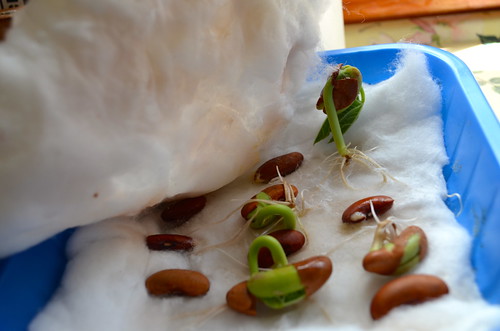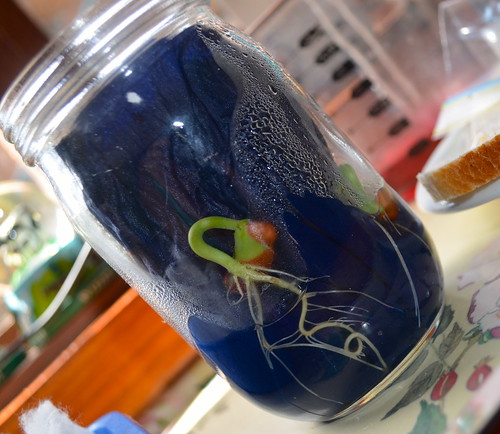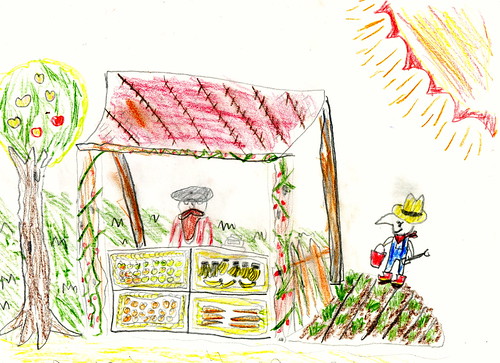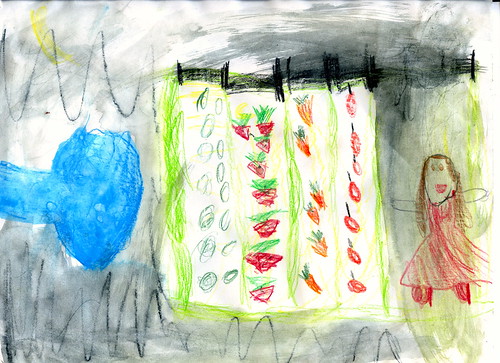I am posting this post purposefully between our Eat for the Earth meal and a post about the work that the folk at Soil for Life do, it is a topic that I feel strongly about and I wish I personally was doing more about it. The fact is that “a third of the world’s food produced for human consumption is lost between the field and the fork,” there are people in our country that are literally starving, malnutrition is a way of life… and not just rural children, living below the poverty line.

There is no denying that we live in a hungry part of the world… in a world where terms like sustainable food and food security, not to mention food scarcity are bandied about in our every day conversation, terms to get you extra marks in your social studies exam. When we think of malnutrition we think of starving children in third world countries… the truth is that the malnutrition and hunger is a far more insidious and pervasive disease affecting people across the financial spectrum. Wealthy families with pre-packed pre-preprocessed pre-prepared food are at just as much risk of having an unbalanced diet and suffering from malnutrition as the township child.

I am sure most of us have planted beans for school and I know with our kids we did a science experiment where a bean or two were placed in ideal conditions: In some lovely moist soil in an egg box on a sunny windowsill. Other seeds were placed in the moist soil in the dark, or dry soil in the sun, or waterlogged soil, some even went into the fridge… after three days… all the beans were placed in the ideal conditions… their place in the egg box was waiting for them. Now after three days our “lucky” beans had made exceptional progress, the others not so much. After a couple of days all the beans were growing… somewhat, but most not at all well. The beans with the poor start just never caught up, they produced scrawny beans, their leaves never unfurled and they just never ever reached the same size and strength as those beans that got off to a good start.

This is the problem with food, those children that don’t have good nutrition to start with are just not equipped to catch up. So in our old age, when we are hoping for bright and sparky, intuitive and innovative young people to be responsible for our economy, our neighbourhoo and cities, we will in fact have leaders that just do not have the mental and physical ability to take care of themselves, let alone nations.

There is a real problem in our cities… food is a commodity, and goes wherever the money is. This means that there are places within our cities where food is just not accessible to people that are desperately hungry. One thinks of the poorest of poor… but don’t forget the wealthy… it is all very well to have beautifully decorated supermarkets with stunning photographs of organically grown food, and all the while they are marketing easily accessible fast food, so that folk have more time for their sedentary lifestyle. Folk are being led away from their more traditional diets down the path to bad health, and ultimately some very serious diseases.

I just recently read The Hungry Season by Leonie Joubert, photography by Eric Miller and published by Pan MacMillan South Africa. This book considers the dilemma of our hungry nation: South Africa appears to produce enough nutrients for all her people to be well nourished and yet millions of people find themselves hungry or living with the fear of hunger. It appears that bright and colourful and vibrant food is available to all of us, food is everywhere… in the store, on the sidewalk at markets… and and like most developing nations people are getting fatter. It appears that we are generally well fed, the problem is is that as people find it harder to access nutritious foods, so they make poorer and ultimately unhealthy decisions.

The author takes us into the lives of eight South African households and what they are eating… it is distressing to see small children getting sugar water to fill their tummies before heading for school… the truth is that our country is hungry and even those that are eating a satisfying meal today are living with a real and ever present fear that they they will not have a meal the next day. The fear of not knowing where the next meal, let alone nutritious meal will come from, crosses all the economic spectra of our country. It is an insidious problem that affects everyone. This book dives straight into the messy problem of just where does the next meal come from… it states the problem and considers solutions. The narrative is poetical and harsh all at the same time and the photographs go a long way to reveal the hidden story. There is no hiding a completely empty cupboard from a camera. This book is compelling reading… and almost every visitor that has seen it on our coffee table in the last two weeks has asked to borrow it… It is beautiful and provocative – you will not want to walk away from this book without thinking: “What can I do?” We must change the status quo.

There are solutions of course, but no quick fixes. We have to stop wasting so much food, why is so much food being thrown away… food from farms, supermarkets and homes… the wastage is just out of control. It would be really economically worthwhile to provide extra nutrition to pregnant moms and children under two. And while there is no harm in growing urban vegetable gardens, if a person is hungry today then they cannot wait a few weeks for their first carrot to sprout. Perhaps educating people… how to grow their urban garden with what they have and where they are.

This book will definitely raise a number of questions, you will find yourself full of emotions: angry and overwhelmed being the obvious ones… but it is not a desperate and hopeless book by any means. And don’t for minute think that because it is a South African book that it is a particularly South African problem… this is a problem the world over and one that has been addressed really well in this book. I recommend to anyone who wants to do “something” but just doesn’t know where to start. Knowing what the problem is, is usually a good place to start looking for a solution.
If you are interested in seeing an interview with the author, Leonie Joubert, talking about her book then follow the link. This book was given to us by Pan Macmillan South Africa for review purposes, we were not paid for the review and opinions are as usual, completely our own.

I love reading impassioned posts like these!
And I LOVE the beans metaphor – gosh, that drove the point home for me!!!
Oh Marcia… Thank you!!! Yup… it really is just such a huge problem, the research they have put together in this book is an incredible amount of work, and the fact that they have interpreted the results for us to read is great. Nothing short of alarming… to say the least, there is just no excuse really to look the other way. At least teaching our own children to respect and appreciate a nutritious diet is a place to start. If South Africa can win World Cup’s surely we can feed our children. Surely folk just aren’t aware of the problem and the media needs to bring it to the fore. On that opinionated note… I think I need to write a post on learning to read for you!!! Hope you are having a fabulous weekend!!!
I am re-inspired by this post…. I take healthy food for granted and yet easily slip into totally non-nutritious eating.
This looks like a great book to read. Thanks for sharing these thoughts!
Thought provoking. You’ve told us about the problem and why we should care. Interesting that it effects all sections of the population. This is one of those posts that make me feel I’m living in a bubble and really can’t afford to. Pun not intended, but it is food for thought.
Hello Debbie, So good to hear from you… and yes, I couldn’t agree more. To have the choice of nutritious vs non-nutritious food has definitely become a luxury over here… A very interesting book and well worth the read. Lots of love to all of you!!!
Oh Cheryl, I am so with you… one of those issues that we tend to think is happening “over there” and yet it is right wherever you are. Thanks so much for stopping by… hope you have a good week.